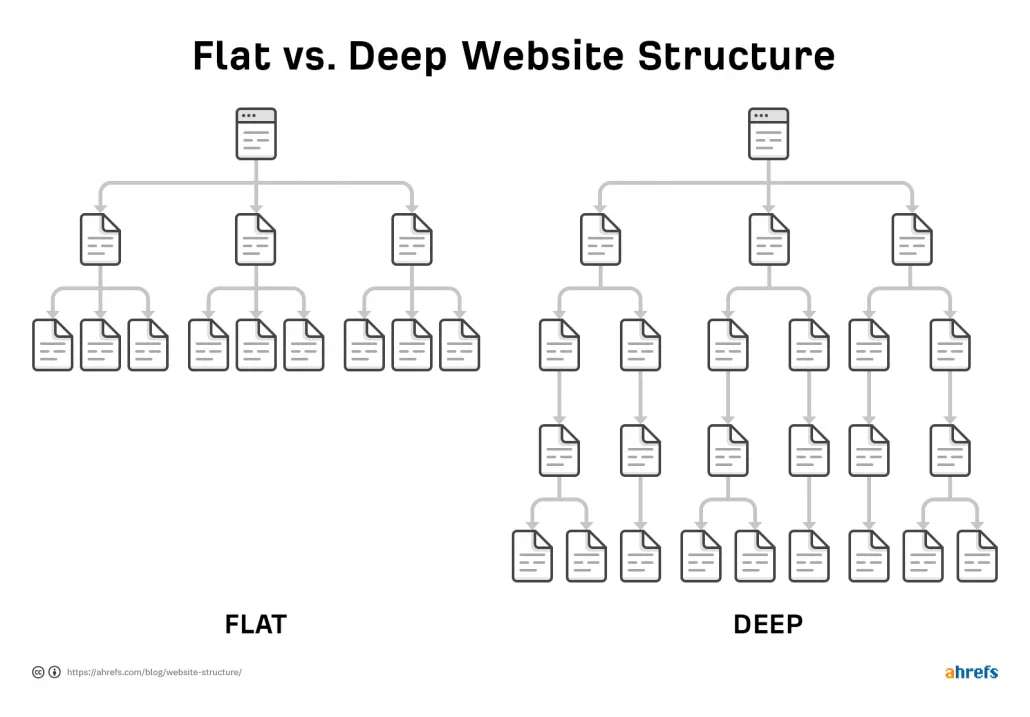Where to network with other ecommerce SEOs in 2023 and 2024 – the UK edition

Working in-house as an ecommerce SEO can sometimes feel a bit isolating, as many of us know after our own careers on the client-side! If you’re in a large internal digital marketing team, this may not be the case, but if you’re in a smaller department, it’s always good to stay more connected to the wider industry outside your office doors.
This is mostly possible through networking opportunities, which we’re going to cover in this blog post.
Why networking is helpful in SEO
Whether you’re in-house, or agency-side (like us!) networking is always a helpful tool. There are a handful of reasons why, such as:
General opportunities: meet new people, make connections, and build relationships. These connections can lead to job opportunities, business partnerships, collaborations, and other avenues for personal and professional growth.
Knowledge sharing: through networking, you can learn from others’
» Read more about: Where to network with other ecommerce SEOs in 2023 and 2024 – the UK edition »
6+ reasons to read ecommerce news, and where to find it

As an eCommerce retailer (or like me, someone who works with one or more), there are several important reasons to spend some time each day finding out what’s happening in the wider market. Without fail, every morning I will spend around 15 minutes scanning my favourite online eCommerce news sources.
I share anything important with my SEO colleagues, clients and (when I’m feeling particularly generous) industry peers.
Now that I’m in such a good routine, I thought I’d share my reasons for keeping myself and my team up to date with eCommerce news, and I’ll even show you where to find the best online news sources for eCommerce retailers.
Reasons to read eCommerce news
First up, why even bother reading the news?
» Read more about: 6+ reasons to read ecommerce news, and where to find it »
The changemakers of SEO

I was sitting in a meeting room with the technology and digital category judges for the 2022 Women of the Future awards – shortlisted for my leadership and neurodiversity advocacy – when judge Peter Brown MBE asked me what winning would mean for both me and the SEO industry.
Slightly taken aback by the gravity of the question, I realised Peter had a point; I hadn’t seen SEO widely represented outside of our own industry awards.
We discussed how the perception of SEO to the rest of the UK population could be formed by what they’ve seen on reality TV, such as Mark Wright founding Climb Online on BBC’s The Apprentice.
Indeed, my own perception of SEO has been formed in the many years I have worked in the industry. I have seen it from many angles, some uglier than others. But at the heart of it, I do believe that there is a beauty waiting to be uncovered.
In the end, I told Peter that winning would shine a light on the often mysterious ways of the tech/marketing hybrid discipline in which we work. It would open the door for more stories to be told, and for individual, community and company contributions to be validated.
I realised that being shortlisted for an award like this could even change the narrative I’ve created in my own mind, if not those of others too.
Once you’ve read one too many SEO Twitter dramas, or set up your 97th inbox rule to send the constant stream of link requests to spam, it takes a while to shed the negativity and instead see the light.
The reason I am writing this post is to showcase some of the more wonderful assets of the industry in the UK, which I’ll dub the ‘changemakers of SEO’. This is a non-exhaustive list, so please do reply to this post and comment with the people that make the biggest difference for you.
Let this be something you return back to when you are seeking the positive, and the ways we can make our industry sustainable and supportive in the long-term.
Areej AbuAli
Founder of Women in Tech SEO &
Sustainability in eCommerce fashion retail: the uneasy balance

A few weeks ago I was speaking with a pal who works in the eCommerce team at a well-known online and high street fashion retailer in the UK. They shared with me some of the steps the brand has taken to move towards being a more sustainable company.
Everything they shared were really admirable things, such as improvements to sourcing materials, production, shipping, etc. But despite this, they’re too nervous to incorporate any of these changes into their SEO content strategy.
You’re probably wondering why this is. And the answer is really to do with public relations (PR);
» Read more about: Sustainability in eCommerce fashion retail: the uneasy balance »
What is SEO? How To Optimise Your Website For Google

Introduction to SEO – How To Optimise Your Website For Google
Did you know that 53% of all trackable website traffic comes from organic search (BrightEdge)? However, according to AHREFs, 90.63% of pages get no organic search traffic from Google. So despite the potential of organic search, many of us still haven’t captured more than double our current traffic levels. Is that because we, as marketers and webmasters, still aren’t sure what SEO is? Or are we just unsure how to optimise our websites for Google?
What Is SEO?
SEO is an acronym for Search Engine Optimization. So, SEO is the process of improving the quality and quantity of a website to get more organic visitors from search engines. Focus has moved from keywords to the user, their consumer journey and solving their problems. The key to success is to create the right content, for the right user, at the right time, to help them resolve their current problems.
Are SEO And SEM The Same?
» Read more about: What is SEO? How To Optimise Your Website For Google »
What is Technical SEO And How Can You Improve It?

What is Technical SEO And How Can You Improve It?
Google uses over 200 factors to judge and rank web pages according to SEO research, and around 20% of these factors are based on your website’s technical health. So working on improving your technical SEO is important. But what does that mean these days? And what are the most important tech SEO factors?
What is Technical SEO?
Technical SEO is a type of search engine optimization that is all about improving the infrastructure of your website. As the name suggests, it involves optimising the aspects of your website that affect its technical health, from page speed to URL structure.
The aim of these optimizations is to help search engines to crawl, index, and ultimately rank your content while also providing a better user experience to searchers. So, to really understand how to work on your technical SEO, you need to understand how search engines work.
How Search Engines Work
Search engines, like Google, need to discover all of the pages on the internet, understand the content on them, and decide which ones best match each search query made by its users. For context, there are 5.6 billion searches made every day, so Google needs to be efficient, accurate, and fast.
To do this, search engines work in three steps:
-
Crawling
Google sends robots, called Googlebots, to discover all the pages on a website. Googlebot does this by starting from the homepage and following all of the links until it runs out of time.
-
Indexing
Once Googlebot has collected all the web pages that it can find, it takes a snapshot of them and returns to Google, where the content is processed, understood, and stored in an index next to other related pages.
-
Ranking
When someone makes a search, Google will look through its index to find the most relevant pages. It will then rank these results by relevance using complex algorithms.
Technical SEO is about making this 3-step process as efficient and slick as possible to give your content the best opportunity to rank.
How To Improve Your Site’s Technical SEO
When it comes to working on your site’s technical SEO, you need to consider how you can make it easy for Googlebot to access your site, find all the content, understand all of the content, and know when to rank it. This involves optimising several aspects of your website, including:
- Site architecture
- URL structure
- Robots.txt
- XML sitemaps
- Structured data
- 301/302 redirects
- Canonical tags
- Hreflangs
- Noindex / Nofollow
- Structured Data
- PageSpeed optimization
Site Architecture
Tip: Use a Flat, Organised Site Structure
Site architecture is how your web pages are structured and linked in relation to one another. This can include internal links, category structure, menu navigation, and more.
Generally, there are two main types of site structure, only one of which is more effective for SEO and users.
» Read more about: What is Technical SEO And How Can You Improve It? »
Autonomy: An Essential Part of Professional Development

Over the course of my career, ‘training’ has been varied.
There’s been on-the-job training, and learning directly from a more qualified colleague. Then there has been the occasional conference (which in many cases, involved swapping passes with a co-worker part way through the day so we could take turns attending). There’s also been group training, both internally and externally.
Much of this training was valuable, but what I didn’t have was the freedom of choice. A choice to decide what I’d like to learn and how.
Continued learning has always been important to me, but much of what I have learned since starting in SEO has been prescribed by current client needs, agency growth plans, or specific requirements to be promoted into a more senior role.
This has seen me:
- trawling through endless pages of Google Tag Manager documentation
- shouting across the room at a General Assembly public speaking workshop
- and listening to videos about creating a great user experience whilst cooking my dinner.
I was happy to do all of these things, but none of them made me happy.
Then I joined Re:signal and understood that the reason was that I’d never been given autonomy over my career training choices before.
What is autonomy?
» Read more about: Autonomy: An Essential Part of Professional Development »
Re:signal at BrightonSEO – September 2021

September 2021. The month that we finally made a return to in-person conferences. It was strange, beautiful, tiring, and welcome. After doing it all online over the last 18 months, a two-day stint at BrightonSEO was diving in straight in the deep end.
Around half of our team members made it down to BrightonSEO for the September 2021 conference, with the other half due to watch the online edition instead later this month.
What was our experience like?
I decided to ask the BrightonSEO first-timers in our team for their thoughts on the event;
» Read more about: Re:signal at BrightonSEO – September 2021 »
Neurodiversity in SEO: How inclusive is your workplace?

[fusion_builder_container hundred_percent=”no” equal_height_columns=”no” hide_on_mobile=”small-visibility,medium-visibility,large-visibility” background_position=”center center” background_repeat=”no-repeat” fade=”no” background_parallax=”none” parallax_speed=”0.3″ video_aspect_ratio=”16:9″ video_loop=”yes” video_mute=”yes” border_style=”solid” flex_column_spacing=”0px” type=”legacy”][fusion_builder_row][fusion_builder_column type=”1_1″ layout=”1_1″ background_position=”left top” background_color=”” border_color=”” border_style=”solid” border_position=”all” spacing=”yes” background_image=”” background_repeat=”no-repeat” padding_top=”” padding_right=”” padding_bottom=”” padding_left=”” margin_top=”0px” margin_bottom=”0px” class=”” id=”” animation_type=”” animation_speed=”0.3″ animation_direction=”left” hide_on_mobile=”small-visibility,medium-visibility,large-visibility” center_content=”no” last=”true” min_height=”” hover_type=”none” link=”” first=”true” type=”1_1″][fusion_text]
Have you ever experienced a time where you felt like you didn’t fit in? Take a few seconds, and think about that moment.
Now, imagine that moment happened every — single — day of your life. That is how life sometimes feels to me, and that is because I am autistic.
When I board a train, I see “normal” people sitting down in carriages –
» Read more about: Neurodiversity in SEO: How inclusive is your workplace? »
How will lockdown affect Christmas shopping in 2020?

As England enters the second week of the autumn Covid-19 lockdown, our thoughts have turned to the potential impact on the busy retail period leading up to Christmas.
Before the start of the latest lockdown measures last week, some shoppers were seen rushing to retail outlets before the shutters came down, and it remains to be seen what in-store shopping will be able to take place in December.
Right now, it’s unclear whether the current restrictions will end as suggested on December 2nd, or they will be extended. Regardless, it is likely that Christmas shopping in 2020 will be significantly different from previous years.
We’ve taken a look at historic trends and recent studies to get a greater insight into what might happen this year, and key dates in the Christmas shopping calendar. Read on to find out more…
Christmas sales before ‘unprecedented times’
Every year since 2016, Christmas sales in the UK have been valued at around £78 billion (via Statista), so there is serious money to be made by retailers who provide the right products and experience in the lead up to the festive period.
The big difference this year will be where the money is spent: online or in store. In previous years we’ve had the freedom of choice;
» Read more about: How will lockdown affect Christmas shopping in 2020? »





